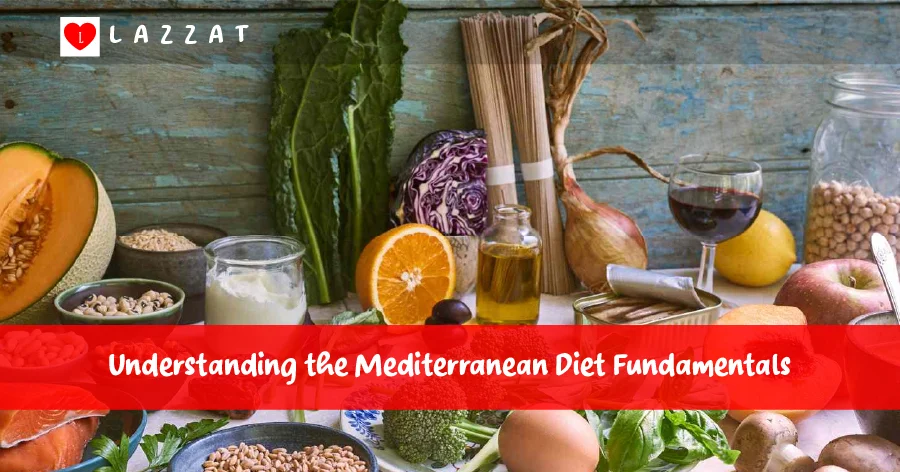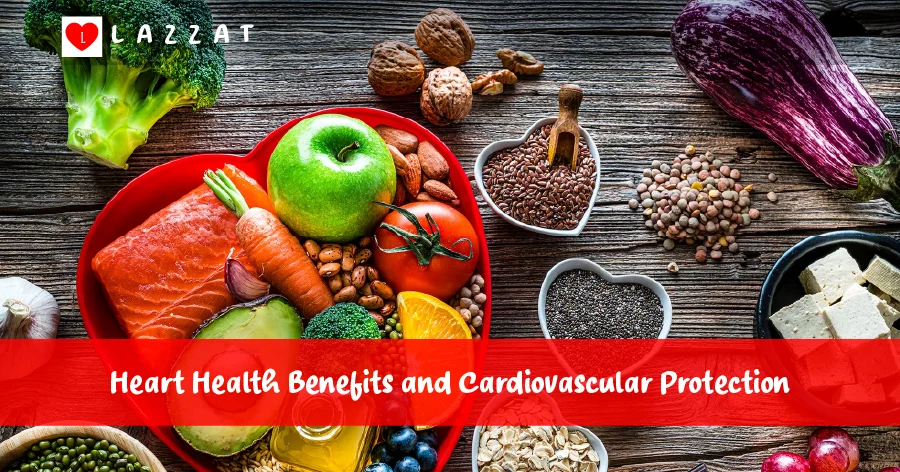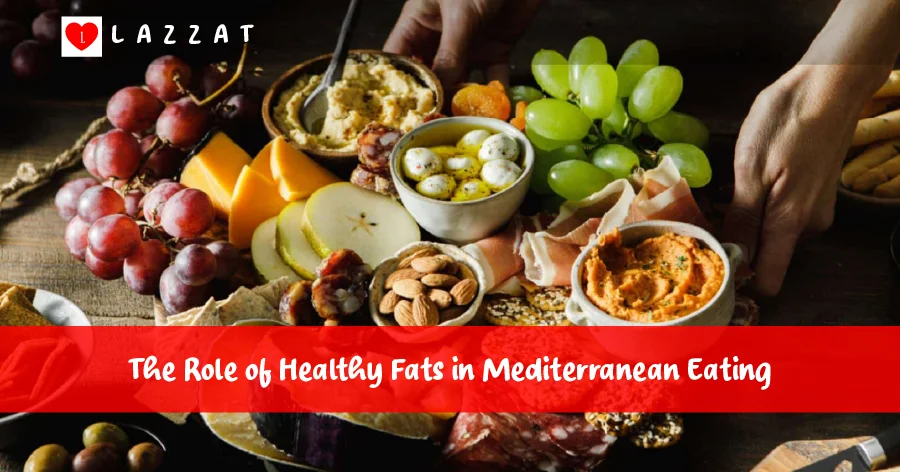Why Should You Try a Mediterranean Diet Plan?
- mylazzat
- Diet Plan, Mediterranean
- 0 Comments
The Mediterranean diet is known for its health benefits. It’s based on the eating habits of countries near the Mediterranean Sea. This diet focuses on plant-based foods that help your heart, manage weight, and increase longevity.
By following this diet, you can enjoy many benefits. These include lower risks of chronic diseases and better brain function. It’s a great way to improve your health and well-being.
The Mediterranean diet is rich in fruits, vegetables, whole grains, and healthy fats. It’s a balanced eating pattern that includes lean proteins, seafood, and sometimes red wine. This makes it a sustainable and nutritious choice for your health.
Understanding the Mediterranean Diet Fundamentals
If you’re looking to eat more plants and focus on healthy fats and whole grains, the Mediterranean diet is worth checking out. This diet comes from the countries around the Mediterranean Sea. It’s a way of eating that nourishes your body.
Key Components of Mediterranean Eating
The Mediterranean diet is all about plant-based foods like fruits, veggies, whole grains, legumes, nuts, and seeds. These foods are packed with vitamins, minerals, and antioxidants. It also includes healthy fats like olive oil, known for its health benefits.
Historical Origins and Cultural Significance
The Mediterranean diet comes from the traditional ways of eating in Greece, Italy, and Spain. It shows the agricultural traditions and cultural values of these places. Meals were often shared with family and friends, adding to the diet’s social value.
Traditional Mediterranean Food Groups
- Fruits and Vegetables
- Whole Grains (like whole wheat, brown rice, quinoa)
- Legumes (beans, lentils, peas)
- Healthy Fats (olive oil, nuts, seeds, avocados)
- Seafood (especially fatty fish like salmon, sardines, and mackerel)
- Dairy (in moderation, like yogurt and cheese)
- Herbs and Spices
By eating these plant-based and whole grain foods, and focusing on healthy fats, the Mediterranean diet is balanced and sustainable. It helps nourish your body and support your well-being.

Why Should You Try a Mediterranean Diet Plan?
Starting a Mediterranean diet plan can bring many benefits. It’s not just for losing weight. This diet helps keep your heart healthy, increases your life span, and prevents chronic diseases. It focuses on eating whole, nutrient-rich foods that are full of antioxidants, healthy fats, and vitamins.
The Mediterranean diet is great for your heart. It includes olive oil, fatty fish, and lots of plant-based foods. These foods help lower blood pressure, improve cholesterol, and reduce heart disease and stroke risks.
This diet also helps with weight management and living longer. It teaches portion control and eating fiber-rich foods. Plus, it encourages staying active. It’s also anti-inflammatory, which can lower the risk of diseases like type 2 diabetes and some cancers.
- Promotes heart health and reduces the risk of cardiovascular disease
- Supports weight management and sustainable results
- Enhances longevity and helps prevent chronic diseases
- Provides a nutrient-dense, whole-food approach to disease prevention
By following the Mediterranean diet, you can improve your heart health, manage your weight, live longer, and prevent diseases. This diet is a tasty and lasting way to better your health.
Heart Health Benefits and Cardiovascular Protection
Embracing the Mediterranean diet is more than just tasty meals. It’s a path to better heart health and overall cardiovascular wellbeing. By adopting this diet, you can actively protect your heart and lower the risk of serious diseases.
Impact on Blood Pressure and Cholesterol
The Mediterranean diet shines in lowering blood pressure and improving cholesterol. It combines healthy fats, lots of plant-based foods, and less processed items. This mix helps keep your blood pressure in check and cholesterol levels healthy, key to avoiding heart disease.
Reducing Risk of Heart Disease
Many studies show that a Mediterranean-style diet can greatly lower heart disease risk. It focuses on heart-healthy foods like fruits, veggies, whole grains, and lean proteins. These foods support a strong heart, reducing the risk of heart attacks and strokes.
Role of Omega-3 Fatty Acids
Omega-3 fatty acids are a big part of the Mediterranean diet, found mainly in fatty fish like salmon and sardines. These fats are crucial for heart health. They reduce inflammation, improve blood flow, and lower triglycerides.
By following the Mediterranean diet, you can enjoy a tasty and nutritious way of eating. It supports your heart health and lowers the risk of serious heart conditions.
Might Be Helpful: 5 Simple Ways to Boost Your Cardio Fitness.

Weight Management and Sustainable Results
Starting the Mediterranean diet can really change your weight management game. It focuses on nutrient-rich foods and a balanced lifestyle. This makes it different from fad diets that don’t last long.
The Mediterranean diet is all about eating whole, unprocessed foods like fruits, veggies, whole grains, legumes, and healthy fats. These nutrient-dense foods keep you full and reduce cravings for more.
This diet is not about counting calories or following strict rules. It’s about enjoying the quality of your food, not just how much you eat. This way, you can keep the weight off for good without feeling like you’re missing out.
| Benefits of the Mediterranean Diet for Weight Management |
|---|
| Promotes a balanced, nutrient-rich intake Supports feelings of fullness and satiety Encourages a lifestyle approach to weight loss Reduces the risk of weight regain in the long run |
By choosing the Mediterranean diet, you get a sustainable weight management plan. It helps you reach your goals and keeps you healthy and happy.
Brain Health and Cognitive Function Improvements
The Mediterranean diet is great for brain health and thinking skills. It has special benefits that help keep the brain sharp as we age. This makes it a good choice for living a long and healthy life.
Neuroprotective Properties
This diet is full of good stuff like antioxidants and healthy fats. Foods like olive oil, nuts, and fatty fish are key. They help keep the brain healthy and working well.
Memory Enhancement Benefits
Research shows the Mediterranean diet can boost memory and thinking skills. It’s packed with healthy fats, vitamins, and minerals. These help the brain learn and remember better, even as we get older.
Age-Related Cognitive Decline Prevention
As we age, our brains can slow down. This can lead to serious problems like Alzheimer’s. But, the Mediterranean diet may help prevent this. It’s full of neuroprotective properties and anti-inflammatory compounds.
By following the Mediterranean diet, you can help keep your brain sharp. It focuses on healthy fats, antioxidants, and nutrient-rich foods. This is a smart way to support your brain health all your life.
Essential Mediterranean Diet Foods to Include
Starting a Mediterranean diet means eating a variety of whole, plant-based foods. These foods are not only tasty but also packed with nutrients. You’ll enjoy fruits, vegetables, whole grains, and legumes, all of which support a balanced diet.
The Mediterranean diet focuses on plant-based eating. Your meals should include fresh produce like leafy greens, tomatoes, peppers, and citrus fruits. These foods are full of vitamins, minerals, and antioxidants that boost your health.
Whole whole grains are key in the Mediterranean diet. Foods like whole-grain breads, pastas, and cereals offer complex carbs, fiber, and nutrients. They keep you full and give you energy all day long.
- Whole wheat bread and pasta
- Brown rice and quinoa
- Oats and barley
Legumes, like beans, lentils, and chickpeas, are also important. They’re a great source of plant-based protein, fiber, and vitamins and minerals.
| Food Group | Examples | Key Nutrients |
|---|---|---|
| Fruits and Vegetables | Tomatoes, leafy greens, citrus fruits, berries | Vitamins, minerals, fiber, antioxidants |
| Whole Grains | Whole wheat, brown rice, quinoa, oats | Complex carbohydrates, fiber, B vitamins |
| Legumes | Beans, lentils, chickpeas | Plant-based protein, fiber, folate |
| Nuts and Seeds | Almonds, walnuts, chia seeds, flaxseeds | Healthy fats, fiber, minerals |
| Olive Oil | Extra virgin olive oil | Monounsaturated fats, antioxidants |
| Lean Proteins | Fish, poultry, eggs | Protein, omega-3 fatty acids (fish) |
By adding these plant-based, whole grain, and nutrient-rich foods to your meals, you’ll enjoy the Mediterranean diet’s many benefits. This supports your health and well-being.
The Role of Healthy Fats in Mediterranean Eating
The Mediterranean diet focuses on healthy fats. These fats are key for heart health and preventing diseases. They are found in foods like olive oil, nuts, seeds, and fatty fish.
Olive Oil Benefits
Olive oil is at the core of the Mediterranean diet. It’s full of monounsaturated fatty acids. These fats can lower cholesterol and reduce heart disease risk.
Using olive oil in cooking and dressings can boost your heart health. It’s a key Mediterranean superfood.
Nuts and Seeds Selection
Nuts and seeds are also vital for healthy fats in the Mediterranean diet. Almonds, walnuts, and chia seeds are rich in omega-3 fatty acids. These fats have anti-inflammatory properties and improve heart function.
Adding these foods to your meals can enhance disease prevention. They are packed with nutrients.
Fatty Fish Options
The diet also promotes eating fatty fish like salmon, tuna, and sardines. These fish are full of omega-3 fatty acids. They lower heart disease and cognitive decline risks.
Adding these healthy fats to your meals can greatly improve your well-being.
| Healthy Fat Source | Key Benefits |
|---|---|
| Olive Oil | Lowers cholesterol, reduces heart disease risk |
| Nuts and Seeds | Rich in omega-3s, possess anti-inflammatory properties |
| Fatty Fish | Linked to lower risk of heart disease and cognitive decline |
By focusing on the healthy fats in the Mediterranean diet, you can gain many benefits. These include better heart health and disease prevention. Adding these foods to your meals can make your life more vibrant and fulfilling.

Mediterranean Lifestyle Beyond Food Choices
The Mediterranean diet is famous for its tasty and healthy foods. But, the real Mediterranean lifestyle is more than just food. It’s about living a full life, staying healthy, and enjoying every moment.
Physical activity is a big part of the Mediterranean lifestyle. It could be a walk, swimming, or hiking. Doing things you love helps keep you active and healthy.
Building strong social bonds is also key. Sharing meals and talking with loved ones is important. These connections help you feel good and live longer.
Managing stress is another vital part. Practices like meditation or deep breathing can help. They reduce stress and keep you healthy.
By living the Mediterranean lifestyle, you can enjoy a better life. It’s about being active, connecting with others, and managing stress. These habits help you live longer and healthier.
Getting Started with Mediterranean Meal Planning
Starting a Mediterranean diet might seem hard at first. But, with the right steps, you can make it a part of your daily routine. Begin by planning meals for the week. Focus on eating more plant-based foods, whole grains, and foods rich in nutrients.
Weekly Meal Structure
Try to mix vegetable-based dishes, meals with whole grains, and lean proteins. Eat more fresh fruits, veggies, legumes, and whole grains. Cut down on processed foods and red meat. Save a few days for seafood to get omega-3 fatty acids.
Shopping List Essentials
Get the key items for a Mediterranean diet. These include extra-virgin olive oil, nuts, seeds, whole grains, legumes, and fresh produce. Also, add fatty fish like salmon, tuna, and mackerel. These foods will be the base of your Mediterranean meals and snacks.
Meal Prep Tips
Use your weekend to prep for the week. Roast veggies, cook grains, and make dressings or marinades. This way, you can quickly make healthy meals during the week. It helps keep your Mediterranean diet consistent.
Also Read:
